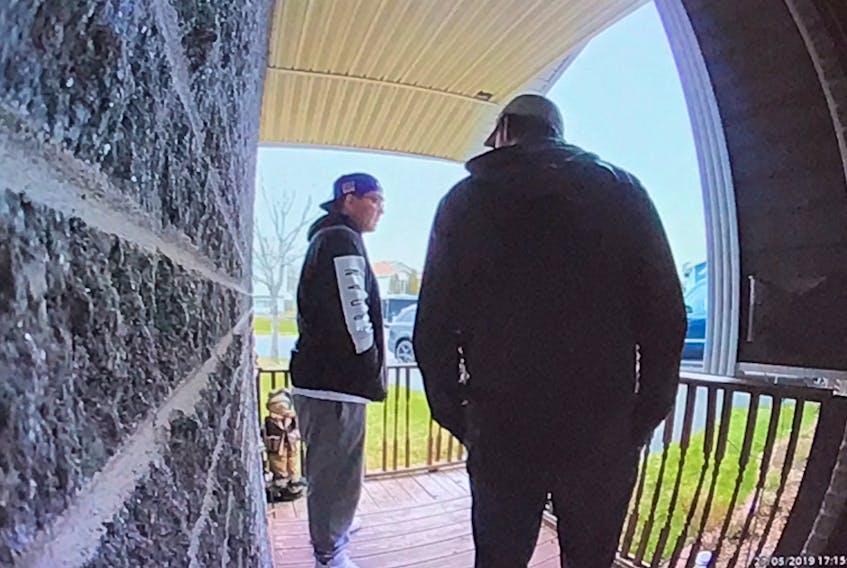ST. JOHN'S, N.L. — A Conception Bay South man serving jail time for extortion has been turned down on appeal.
Justin Jennings appealed his conviction on the grounds the trial judge had been wrong to consider doorbell camera video clips as evidence and that the Crown had not proven the elements of the offence.
Jennings was sentenced in October 2019 to two years and eight months in prison for the extortion charge. He had visited a Mount Pearl man at his home five months earlier, saying he had been sent to collect a $37,000 debt. He didn’t know what the debt was for, he said, and suggested the man pay a third of it right away or things would “get worse.” If he couldn’t pay with money, Jennings said, the man would have to pay with something else.
The man told Jennings he didn’t know what he was talking about, suggesting it was his friend who owed the money instead. Jennings eventually left, telling the man to figure it out with his friend and meet him at a nearby McDonald’s in an hour.
The man’s doorbell camera had captured the exchange but Jennings’ trial lawyer argued for the judge to exclude the video from evidence, given there were gaps in the recording, which the complainant had emailed to police in 13 clips, and no proof the man hadn’t altered the video before sending them. She also argued Jennings’ actions didn’t amount to extortion, since there was no weapon, no assault and no explicit threats. Jennings’ appeal lawyer made similar arguments.
In dismissing the appeal last week, a panel of three judges said there was no evidence the recording system had not been operating properly and the gaps created by the motion-activated system didn’t matter.
“Based on all the evidence, the gaps between recordings did not reduce their value in providing an accurate depiction of the event,” wrote Justice Gale Welsh. “There is no basis on which to conclude that use of the recordings would be unfair or that there was any intention to mislead.”
In order to convict a person of extortion, a judge must be satisfied beyond a reasonable doubt that the person attempted to induce someone to do something; used threats, accusations, menaces or violence; did so with the intention of obtaining something; and that there was no justification for the demand or the use of threats.
Jennings' lawyer argued the trial judge had not considered the entire course of Jennings' actions. Acting as a debt collector is not illegal, he said, submitting the judge had misconstrued what was depicted in the recording.
Welsh said it had been up to the trial judge to assess all evidence and he had accepted the complainant’s testimony that he had felt threatened and that there was a potential for violence.
“The judge concluded that, in the circumstances, there was no reasonable justification or excuse for Mr. Jennings’ threatening conduct. In the result, the elements of the offence of extortion had been proven," Welsh wrote.
Justices Gillian Butler and Lois Hoegg agreed with Welsh’s ruling, with Hoegg adding comments of her own to clarify the legal precedent when it comes to the admissibility of electronic documents into evidence.









